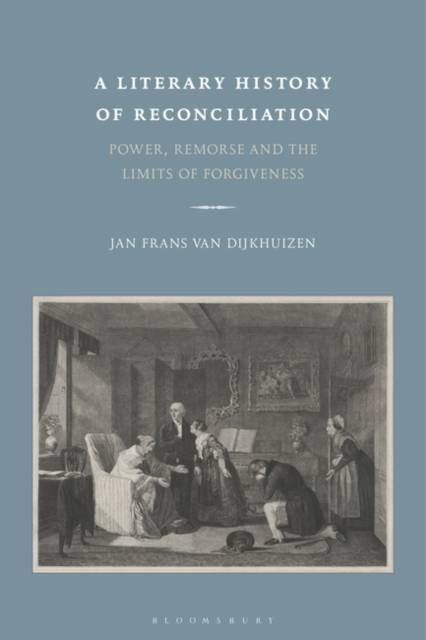
Bedankt voor het vertrouwen het afgelopen jaar! Om jou te bedanken bieden we GRATIS verzending (in België) aan op alles gedurende de hele maand januari.
- Afhalen na 1 uur in een winkel met voorraad
- In januari gratis thuislevering in België
- Ruim aanbod met 7 miljoen producten
Bedankt voor het vertrouwen het afgelopen jaar! Om jou te bedanken bieden we GRATIS verzending (in België) aan op alles gedurende de hele maand januari.
- Afhalen na 1 uur in een winkel met voorraad
- In januari gratis thuislevering in België
- Ruim aanbod met 7 miljoen producten
Zoeken
A Literary History of Reconciliation
Power, Remorse and the Limits of Forgiveness
Jan Frans Van Dijkhuizen
Hardcover | Engels
€ 271,45
+ 542 punten
Uitvoering
Omschrijving
From William Shakespeare to Marilynne Robinson, this book examines representations of interpersonal reconciliation in works of literature, focusing on how these representations draw on the language of divine forgiveness. Christian theology sees divine forgiveness as conditional upon a sinner's remorse and self-abasement before God, but also as a form of grace - unconditional and rooted only in divine love. Van Dijkhuizen explores what happens when this paradoxical forgiveness paradigm comes to serve as a template for interpersonal reconciliation.
As A Literary History of Reconciliation shows, literary writers imagine interpersonal reconciliation as being centrally about power and hierarchy, and present forgiveness without power as longed for but ever elusive. Drawing on major works of literature from the early modern era to the present day, this book explores works by John Milton, Virginia Woolf, J.M. Coetzee, Ian McEwan and others to craft a literary history that will appeal to readers interested in literature, religion and philosophy.
As A Literary History of Reconciliation shows, literary writers imagine interpersonal reconciliation as being centrally about power and hierarchy, and present forgiveness without power as longed for but ever elusive. Drawing on major works of literature from the early modern era to the present day, this book explores works by John Milton, Virginia Woolf, J.M. Coetzee, Ian McEwan and others to craft a literary history that will appeal to readers interested in literature, religion and philosophy.
Specificaties
Betrokkenen
- Auteur(s):
- Uitgeverij:
Inhoud
- Aantal bladzijden:
- 248
- Taal:
- Engels
Eigenschappen
- Productcode (EAN):
- 9781350027220
- Verschijningsdatum:
- 6/09/2018
- Uitvoering:
- Hardcover
- Formaat:
- Genaaid
- Afmetingen:
- 156 mm x 234 mm
- Gewicht:
- 521 g

Alleen bij Standaard Boekhandel
+ 542 punten op je klantenkaart van Standaard Boekhandel
Beoordelingen
We publiceren alleen reviews die voldoen aan de voorwaarden voor reviews. Bekijk onze voorwaarden voor reviews.









